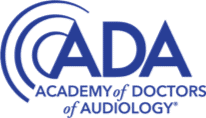 |
 |
 |
As we previously highlighted, Congress is considering adding new hearing benefits to Medicare. The current amended version of the Build Back Better Act (H.R. 5376) being considered by the U.S. House of Representatives includes several hearing-related provisions that would impact Medicare patients and providers, if enacted. The bill would add coverage of treatment services provided by audiologists—for the first time in the program’s history—and reclassify audiologists as practitioners adding them to the list of providers eligible to furnish services via telehealth.
The American Academy of Audiology (AAA), the Academy of Doctors of Audiology (ADA), and American Speech-Language-Hearing Association (ASHA) have championed these provisions as part of the Medicare Audiologist Access and Services Act (H.R. 1587/S. 1731). These efforts have focused on ensuring that audiologists are able to provide the full range of services under Medicare that they are educated, trained, and licensed to provide.
While AAA, ADA, and ASHA are pleased these provisions have been included—a major victory for audiologists—we are disappointed that the bill does not remove the physician order requirement for coverage of diagnostic audiology services, which is essential for beneficiary access.
H.R. 5376 also includes provisions to add hearing aid dispensers as ‘qualified hearing aid professionals’ eligible to provide hearing assessment services, as allowed by state licensure, subject to any additional requirements determined by the U.S. Secretary of Health and Human Services, including those relating to educational certification or accreditation.
AAA, ADA, and ASHA are working with congressional staff to make recommendations to differentiate hearing aid dispensers and define hearing aid dispensing services in a manner congruent with state licensure.
The also includes the following hearing related provisions:
- Coverage of hearing aids for individuals with moderately severe to profound hearing loss in one or both ears once every five years if furnished through a written order by a physician, audiologist, or other practitioner for devices that are determined appropriate by the U.S. Secretary of Health and Human Services.
- Exclusion of hearing aids from competitive bidding when furnished by a physician or other practitioner to their own patients as part of a professional service.
AAA, ADA, and ASHA, are evaluating these provisions and their potential impact on audiologists and audiology practices and are working to provide technical assistance and offer recommendations to Congress on opportunities to ensure beneficiaries receive improved access to audiology services from qualified providers.
We will provide further updates on these advocacy efforts as the legislative process continues to evolve.
###
Recent Posts
Vaccination of Older Adults in the United States
In the United States, this time of year tends to coincide with cold and flu season. As such, it seems timely for us to review…
The Perfect Blend of Professional and Personal
AAA 2026 is coming to San Antonio—right in the middle of Fiesta, one of the city’s most vibrant celebrations. This year, it’s easier than ever…
CMS Sets Medically Unlikely Edit for Key Audiology Codes
The Centers for Medicare and Medicaid Services (CMS) has established a Medically Unlikely Edit (MUE) of two units per date of service for Current Procedural Terminology (CPT®) codes 92629, 92632,…


